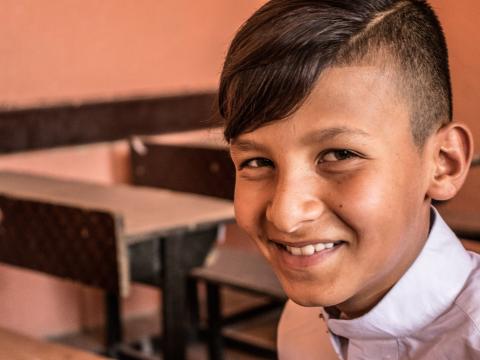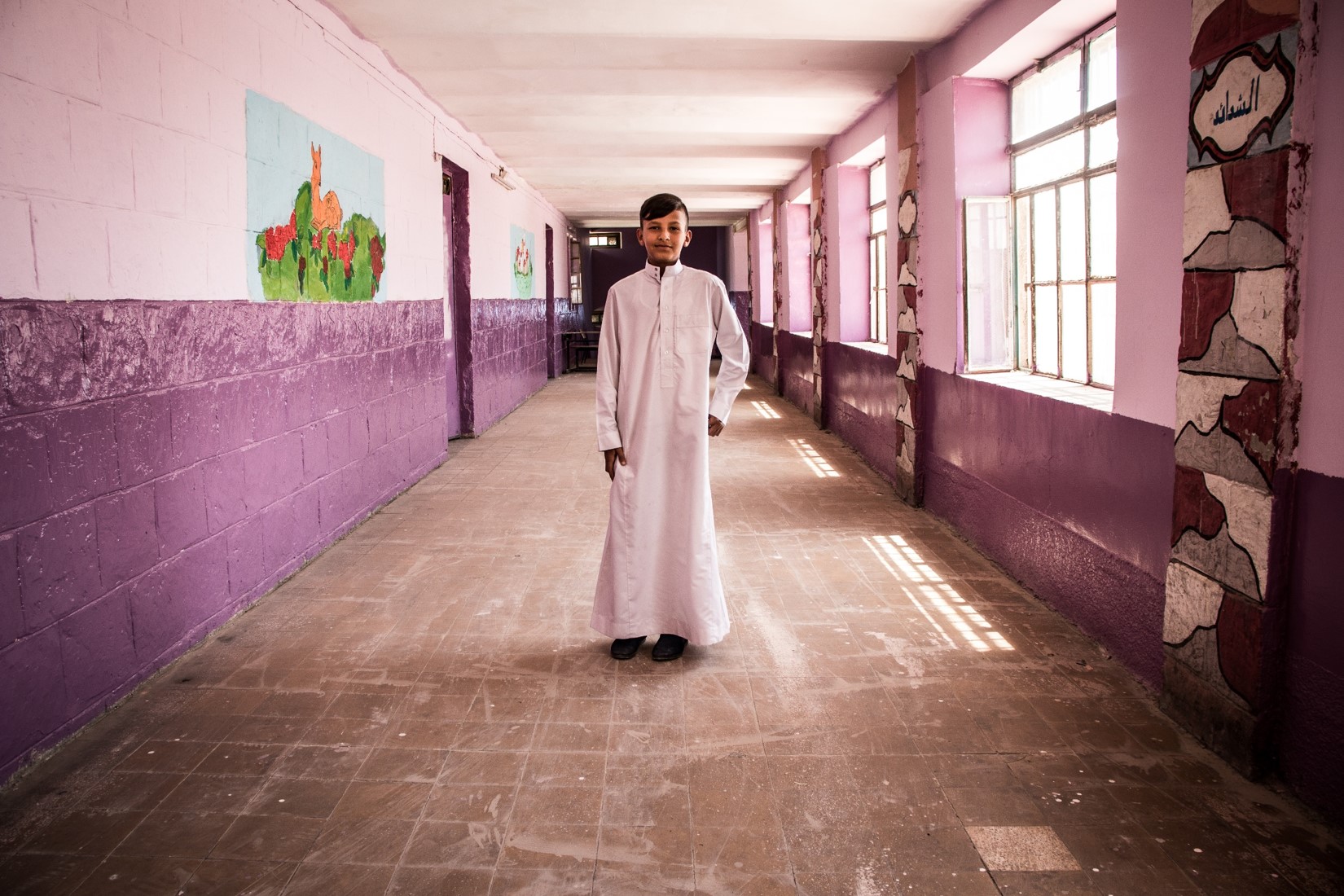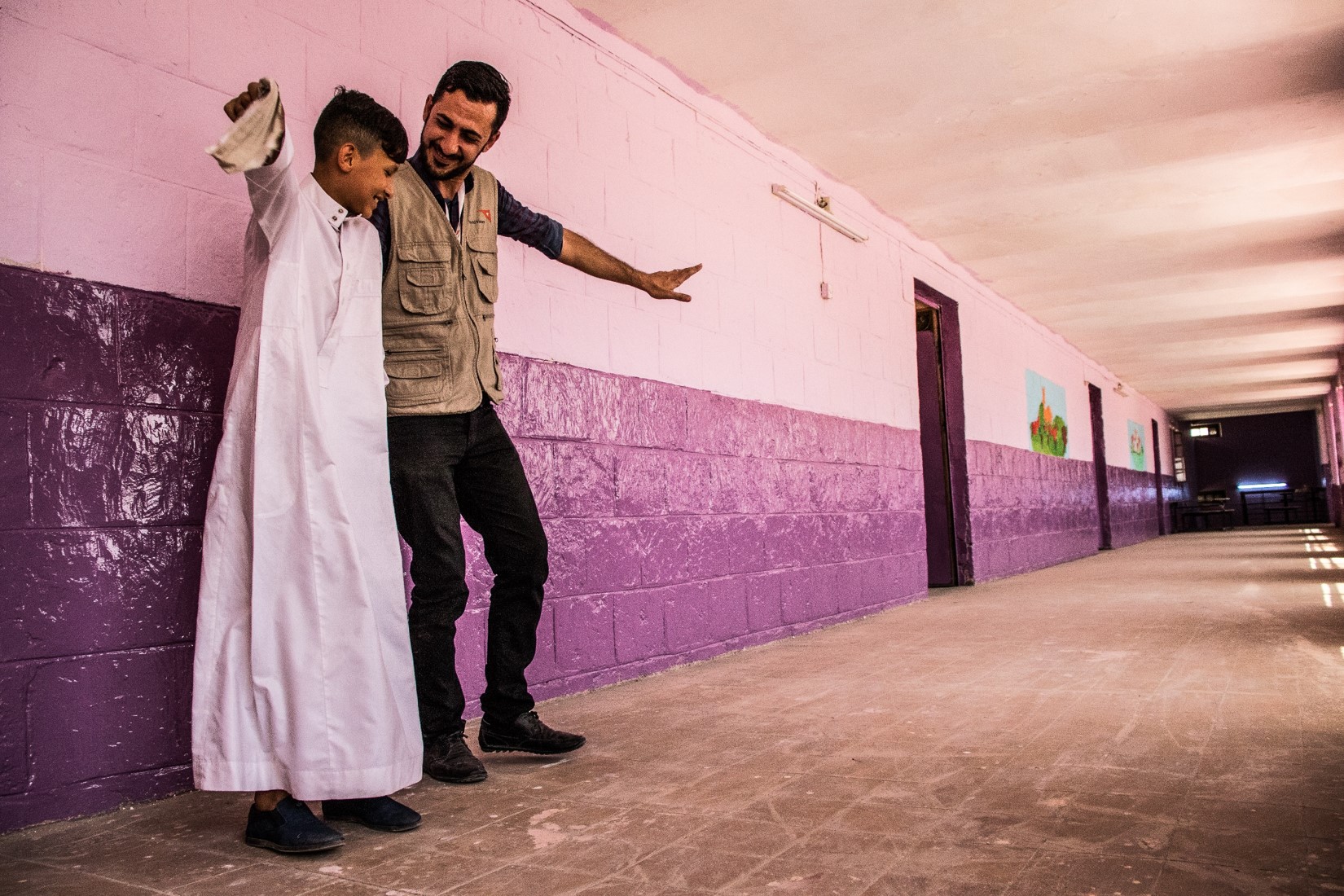"They are my brothers"

story and photo by Sacha Myers, Communications Specialist
Jamal's eyes light up when he talks about the Dabcha – a traditional dance performed in the Middle East at weddings and other ceremonies.
He still remembers his first dance steps. “My father always took me to family parties and there was a specific moment when I took my dad’s hand and started to dance,” Jamal says.
Jamal lives in Kirkuk – a melting pot of different cultures and ethnicities in northern Iraq.
The city’s population of Kurds, Arabs and Turkmen have been hit hard by the ongoing crisis. Camps hosting children and families who have fled the horrors of ISIL dot the region, and tensions often run high between the different groups causing instability and conflict.
Amid the turmoil, Jamal is a beacon of hope for the future of his city – and his country.
He’s part of a World Vision student group set up at his school. His role is to promote peace and acceptance amongst his friends and peers, a job he clearly relishes.
The student groups learn about a range of topics including their rights and responsibilities, hygiene and peacebuilding. The students then transfer what they have learnt to their fellow classmates.
“[In my class] there are Arabs, Kurds and Turkmen. There are two Christian students in my classroom,” Jamal explains.
“Before World Vision was working here the students were using bad words against each other. The way of our relationship has changed after we learnt about accepting each other. It has improved because now I cannot find a difference between me and the other ethnicities. I learnt there is no difference. I have changed a lot and they are my brothers - Kurds are my brothers, Turkmen are my brothers.
“I nearly never hear the bad word from my friends, in the class or in the school. So the change is very noticeable.”
Jamal’s School Manager, Wasa, agrees there has been a change.
“Before World Vision, the students would say to me 'that Kurd hit me' or ‘that Arab was mean to me’. After the student groups, they avoid the problem from the start. The student groups meet regularly and prevent these conflicts from happening,” Wasa says.
“At Christmas, the students brought specific gifts for the Christians and went to their house for a celebration. They started learning and enjoying each other's holidays. The difference is quite clear.”
Jamal recently participated in a festival organised by World Vision. The aim of the festival was to bring everyone together and to build peace between the different communities through the Dabcha dance.
“I like dancing the dabcha - and each ethnicity has a different way of dancing the dabcha and I wanted to show my way of dancing,” Jamal says with a huge smile.
“The festivals are a good way to understand each other and to know each other, and to start a relationship.”
With funding from UNICEF, World Vision is working with 48 schools across the Kirkuk region to improve the quality of education, help out-of-school children restart their education and to build peace and acceptance within the community.

